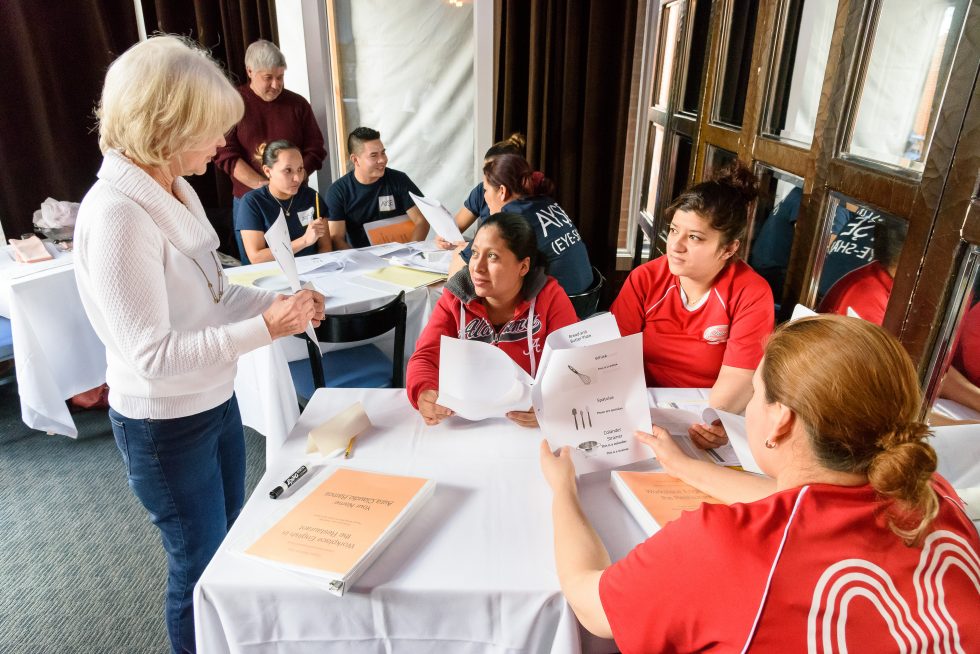When Immigrants Learn English . . .
What does our community lose when its immigrant workers speak English poorly or not at all?
Let’s look at a Brookings Institute study, “Investing in English Skills: The Limited English Proficient Workforce in U.S. Metropolitan Areas” (Jill H. Wilson, 2014):
“English proficiency is a strong predictor of economic standing among immigrants regardless of educational attainment. Numerous studies have shown that immigrants who are proficient in English earn more than those who lack proficiency. . . . [U]nderemployment represents a loss of productivity that yields lower wages for individuals and families and lower tax revenues and consumer spending for local areas.”
This is true for adults from across the whole spectrum of employment, from doctors and accountants to skilled and unskilled laborers. When our students learn English, they are able to find jobs that match their skills. They earn more, they pay more taxes, they use fewer social services, and they spend more in the local economy.
What else do we gain – in addition to a more prosperous community – when immigrants learn English?
“[Higher] proficiency in English among immigrants is associated with the greater academic and economic success of their children. English skills also contribute to immigrants’ civic involvement and social connection to their new home.”
We hear it from our students again and again: When they learn to speak English, they feel more a part of the community. They volunteer in their children’s schools, join civic organizations, or become English language tutors themselves. Their children see their parents working hard to learn new skills and to become valued members of the wider community.
Finally, the Brookings study points to the difficulty of learning a new language:
“Immigrants who arrive in the United States without knowing English do, by and large, improve their proficiency over time. . . . But mastering a new language – especially without formal instruction – takes years. Assuming that immigrants will ‘pick up the language,’ while proving true in the long run, is not an efficient strategy for improving labor market outcomes in the shorter term. . . . [I]t is in our collective interest to tackle this challenge head on.”
This is the challenge that the Literacy Council tackles, head on, every day! Our immigrant students are working hard to establish themselves in the workplace and in the community. Our English language tutors are changing the world by changing their students’ lives, one by one.



